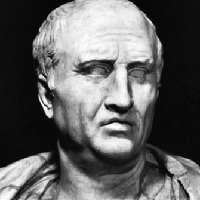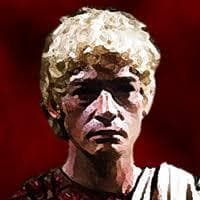Cicero MBTI Personality Type
Personality
What personality type is Cicero? Cicero is an ENFJ personality type in MBTI, 3w4 - so/sp - 316 in Enneagram, SCOEI in Big 5, EIE in Socionics.
ENFJ is a much better fit than ENTJ. Types with Fe, especially dominant Fe, are biased toward unity of sociological ontology – in other words, with regard to people, they are much more likely than Te types to see other people as extensions of themselves and to treat them accordingly. Here are some examples of this in Cicero: • "All men are brothers, and the whole world is to be considered as the common city of gods and men." • "We are not born for ourselves alone." • "A friend is a second self." • "The nobler a man, the harder it is to suspect inferiority in others." • "What is thine is mine, and all mine is thine." • "One who sees the Supersoul accompanying the individual soul in all bodies and who understands that neither the soul nor the Supersoul is ever destroyed, actually sees." Types with high Fe and Ni are often highly attuned to society as a continuum - in other words, where civilization has come from, and where it is going (Ni sees the directional essence of this, while Fe relates it in a broad and all-inclusive sense to all people). We see this in Cicero as well: • "The life of the dead is set in the memory of the living." • "Books are more than books, they are the life, the very heart and core of ages past, the reason why men worked and died, the essence and quintessence of their lives." • "Not to know what has been transacted in former times is to be always a child. If no use is made of the labours of past ages, the world must remain always in the infancy of knowledge." • "What nobler employment, or more valuable to the state, than that of the man who instructs the rising generation?" Here is some additional evidence that Cicero did NOT see the world as a typical Te type might: • "Law applied to its extreme is the greatest injustice." • "Freedom is participation in power." • "Justice consists in doing no injury to men; decency in giving them no offense." • "I criticize by creation - not by finding fault."
Biography
Marcus Tullius Cicero (sometimes called "Tully" in later references), 106-43 BC, was a prominent statesman and the preeminent orator of late Roman Republic, credited by some for being single-handedly responsible for the persistence of the ancient Greek intellectual tradition in Western culture. This is as much for the quality and content of his writings (which is quite good and interesting) as it is for its sheer volume. The First Century BCE has always known to be an unusually rich era (before and afterwards) in terms of availability of information, but even in that light, Cicero stands out. Cicero as revealed in his own writings, is a deeply compelling individual, someone who is interesting for his flaws and failures as much as he is for his insight and virtues. He was a smart man, deeply human, vacillating and politically inconsistent and yet capable of courage when he tried to stop the erosion of the Republic during the foundation of the Second Triumvirate.
Related Personalities
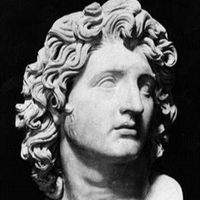
Alexander the Great

Cleopatra

Julius Caesar
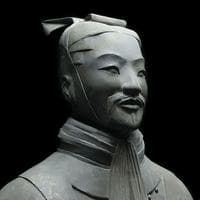
Sun Tzu

Cyrus the Great
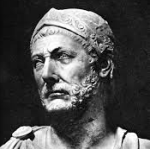
Hannibal Barca

Ying Zheng (Qin Shi Huang)

Darius the Great
